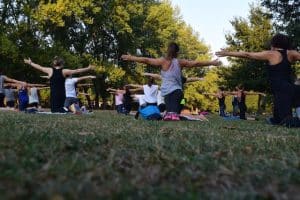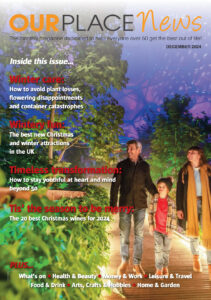A healthy lifestyle is always important – but do your needs change at different ages?

Living well is important at any age, but experts say our health priorities can change as we get older. While the principles of exercising regularly, eating well and managing stress will always be relevant, there may also be specific things you can do – at each milestone decade – to make sure you’re harnessing your full healthy potential. So, what are they? We asked health experts to share their tips for happy, healthy ageing, post 50…
In your 50s you should… check your breasts and prostate regularly
Giles Davies, lead surgeon and director of breast surgery at Cromwell Hospital, says it’s really important for women to check for the signs of breast cancer in their 50s.
“Women should check their breasts from a young age – ideally in their late-teens or 20s – but it becomes even more important as you get older,” he notes. “Around 80% of breast cancers happen in women over 50, so it’s important you attend your screenings.
“It’s also vital you know the signs of breast cancer, so you can act on any concerns. One of the most commons signs is a new lump in the breast area or armpit, though women may also experience nipple discharge, skin changes, or a change in size or shape to either one or both of the breasts.”
Men should also get regular prostate checks. Professor Hashim Ahmed, consultant urological surgeon at Cromwell Hospital, says: “Prostate cancer is the most common type of cancer amongst men in the UK and mainly affects those over age 50. “Problems with urinating can often be one of the first signs that something is wrong, especially if the cancer is pressing on, or growing near the urethra. Other common indications may include needing to pee more frequently, often during the night, or finding it more difficult to start or stop urinating.”
These symptoms don’t always mean you have cancer. However, getting things checked out quickly is always sensible. And in some cases, cancer doesn’t cause any symptoms so it’s important to keep you with regular health checks.
In your 60s you should… look after your joints
Joint pain is very common as we get older, and it’s often caused by osteoarthritis, or wear and tear. Lifestyle measures may help prevent these problems worsening, as well as helping ease flare-ups.
Keeping physically active can still be very important. If you are concerned about joint pain and exercise, speak to your GP and perhaps a physiotherapist for tailored advice.
Kaura adds: “In winter, many individuals with joint conditions find their sensations of pain can become more frequent. For those
experiencing heightened joint pain in winter, a cod liver oil supplement may help. “Research has shown that omega-3 fatty acids helps support the body’s anti-inflammatory response, which can in turn help to prevent joint conditions such as arthritis from deteriorating. There has even been research that cod liver oil can help reduce the number painkillers those with arthritis take.”
In your 70s and beyond you should… keep active
Experts say even people in their 70s should look to undertake some form of exercise every day, but it doesn’t need to be anything as intense as marathon running.
Lin Seeley, wellbeing co-ordinator at Bupa Sandhills Court care home, says: “Light activity, such as a brisk walk or a bike ride, will still provide good benefits, and people should try to clock up about two-and-a-half hours of this a week. “I always recommend that older people work on strength and balance training. This is really important, as it can help keep us mobile into old age, while also preventing falls. “Some great exercises for this can include gentle weightlifting or aerobics. Yoga and Pilates are also great options and can easily be adapted to suit anyone’s ability.”
(Story source: Silver Surfers) (Image: Rui Dias)

